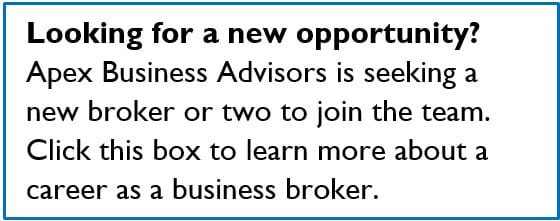Using Your Retirement Account to Acquire a Business
 Talking about using your retirement account to acquire a business…
Talking about using your retirement account to acquire a business…
We’ve previously discussed getting an SBA loan (and many of our acquisitions use the SBA) when starting or buying a business.
If that’s not an option open to you, or if you need even more financing, or if you need more cash for a down payment, you might consider using your retirement account to help you.
Below are general guidelines. Keep in mind that tax rules are complicated and each person needs to check with their tax professional.
Retirement Account Options
The IRA route
You can take a distribution from your account. The consequences of this vary based on whether you have a Roth or Traditional IRA. Your age when you take this distribution is also a factor. The IRS wants its cut, so there may be taxes to pay as well as early distribution penalties.
The 401k route
Slightly more complicated than a simple distribution from your account is a loan from your 401k. In the United States you can borrow up to 50% of your account value or $50,000, whatever is less. There is interest on the loan. It has to be paid back over a five year period. This won’t buy you much and since it’s a debt to be repaid, it may not work when getting that SBA loan.
The ROBS route
The most complicated but most common way to use retirement funds to fund a new business is a government program called “ROBS” (Rollovers as Business Startups). This allows someone to roll over retirement funds in order to purchase a business without the taxes and penalties of a distribution.
Here are the basic steps:
- Roll over a pre-existing IRA or 401k into a 401k that is sponsored by a C corporation
- Invest the funds into that C corporation by buying all its shares
- Operate the new business
Here’s the rub…Despite the fact that the IRS has stated specifically in writing that ROBS is a legal program, there’s been a history of auditing businesses created via ROBS as the IRS fears abuse (at least, that’s what they tell us).
Whether you’re considering ROBS, or taking a loan from your 401k, or taking distributions from your IRA, this isn’t something you should do on your own. This is especially true when it comes to the ROBS program.
There are advisors who are specifically trained to properly use these instruments. They’ve done it over and over with clients. We know these advisors and would be happy to share their names with you. Simply send your Apex advisor an email and we’ll connect you.


 For example, if the current owner is taking a salary that’s higher than what the new owner plans to pay, it will improve the EBITDA figures, increasing the value – and the apparent cash flow potential – of the business. Exceptionally large personal expenses for cars, boats or lake houses also may get added to EBITDA, which would have a positive impact on the business valuation.
For example, if the current owner is taking a salary that’s higher than what the new owner plans to pay, it will improve the EBITDA figures, increasing the value – and the apparent cash flow potential – of the business. Exceptionally large personal expenses for cars, boats or lake houses also may get added to EBITDA, which would have a positive impact on the business valuation. Post by
Post by  Work on Retaining Your Employees
Work on Retaining Your Employees Post by Apex President and Business Broker
Post by Apex President and Business Broker 

 So it’s probably not surprising that Apex contributes to the
So it’s probably not surprising that Apex contributes to the  While broker turnover is low at Apex, we do lose one every now and then. Our brokers see so many great businesses that they often have a hard time resisting the opportunity!
While broker turnover is low at Apex, we do lose one every now and then. Our brokers see so many great businesses that they often have a hard time resisting the opportunity! Seller’s rules of thumb
Seller’s rules of thumb High retirement rates support business transactions
High retirement rates support business transactions A wonderful thing happened recently on the way to the closing table. The buyer and seller agreed to terms and told their attorneys to make it happen!
A wonderful thing happened recently on the way to the closing table. The buyer and seller agreed to terms and told their attorneys to make it happen! 